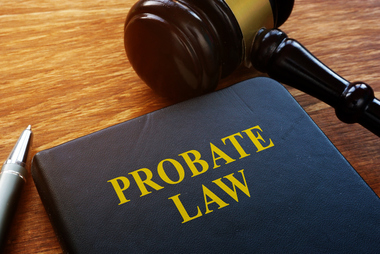Posted in Triplett & Carothers on February 3, 2023
Maybe you have been named executor in a will. Or, for an added wrinkle, suppose there is no executor, or those named are either dead or unavailable. Compounding the problem, imagine you have decided the named executor is not up to snuff and must be replaced.
First, you are under no obligation to retain the original attorney who prepared the will. In fact, assuming you are the executor, that initial lawyer must now turn over the will to you. As you start your search, you will find a vast pool of probate practitioners. Some will be transactional, focused mainly on the probate process, while others will be more geared to litigation.
With such an abundance of choices, which are the most important factors?
Make Sure it’s a Good Fit
Most probate work is fairly routine, mainly requiring keen attention to detail. However, many tasks involved need not be performed by a qualified lawyer. A responsible and well-organized paralegal is often well-equipped to file forms and respond to court notices. Organization — staying on top of who is responsible for what — is key. For instance, who will be ordering the death certificates? Who will be filing with the local probate court or obtaining any property appraisals? Yet each of the many moving parts is normally straightforward.
Experience pays off in prompt execution. The lengthy probate process may feel like molasses, so you do not want to lose extra time in unnecessary waiting. That is one reason you will benefit from a trust and estates specialist, preferably someone with some grasp of other related fields, like tax and real estate. Many attorneys do some probate work to supplement their main practice, rather than fully concentrating on probate.
When you research the backgrounds of prospective candidates, you should find clues in their bios. Where did they go to law school, and for how long have they been in practice? Glance at the subjects of any articles they may have published. That may reveal whether probate is a focus.
Aside from references and reviews, good communication is a priority. Probate can be a highly personal matter, and it is reassuring to deal with somebody compatible. If this is your first experience settling an estate, you will probably want to educate yourself about the process; you need a lawyer who will respect your efforts and never be dismissive of your questions.
Making the Most of an Interview
Most lawyers are open to a short, free initial consultation of about 30 minutes. Before you speak, prepare a list of relevant questions, such as:
- What percentage of your practice is centered on probate?
- How many probate cases have you handled?
- How many situations like mine do you typically handle in any given year?
- How often do those cases end up in litigation?
- Can you deal with property in another state (if necessary)?
- Can I do some of the work myself under your supervision (also known as “limited representation” or “unbundled services”)?
- Do you charge reduced rates for paralegals?
- How long do you expect this probate process to last?
- How much might it cost altogether?
- Will you prepare the final tax returns for the deceased and for the estate?
- What do you see as the strengths and weaknesses of my situation?
- How often and how will we communicate?
What’s the story on billing?
Fees depend on an attorney’s experience, their location (big cities mean bigger bucks), and the size and complexity of an estate. Many charge a ballpark fee of about $300 to $400 per hour. A few states, like Florida or California, permit billing based on a percentage of the gross value of the probate assets, which may become expensive.
Try to be as efficient as possible, and save up your list of issues for one call or meeting. Remember that when the meter is running, it is up to you to monitor the clock.
Reach out to Roz Carothers and her team at Triplett & Carothers to learn more.
©2023


